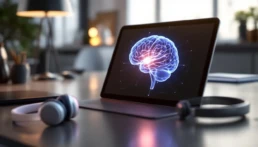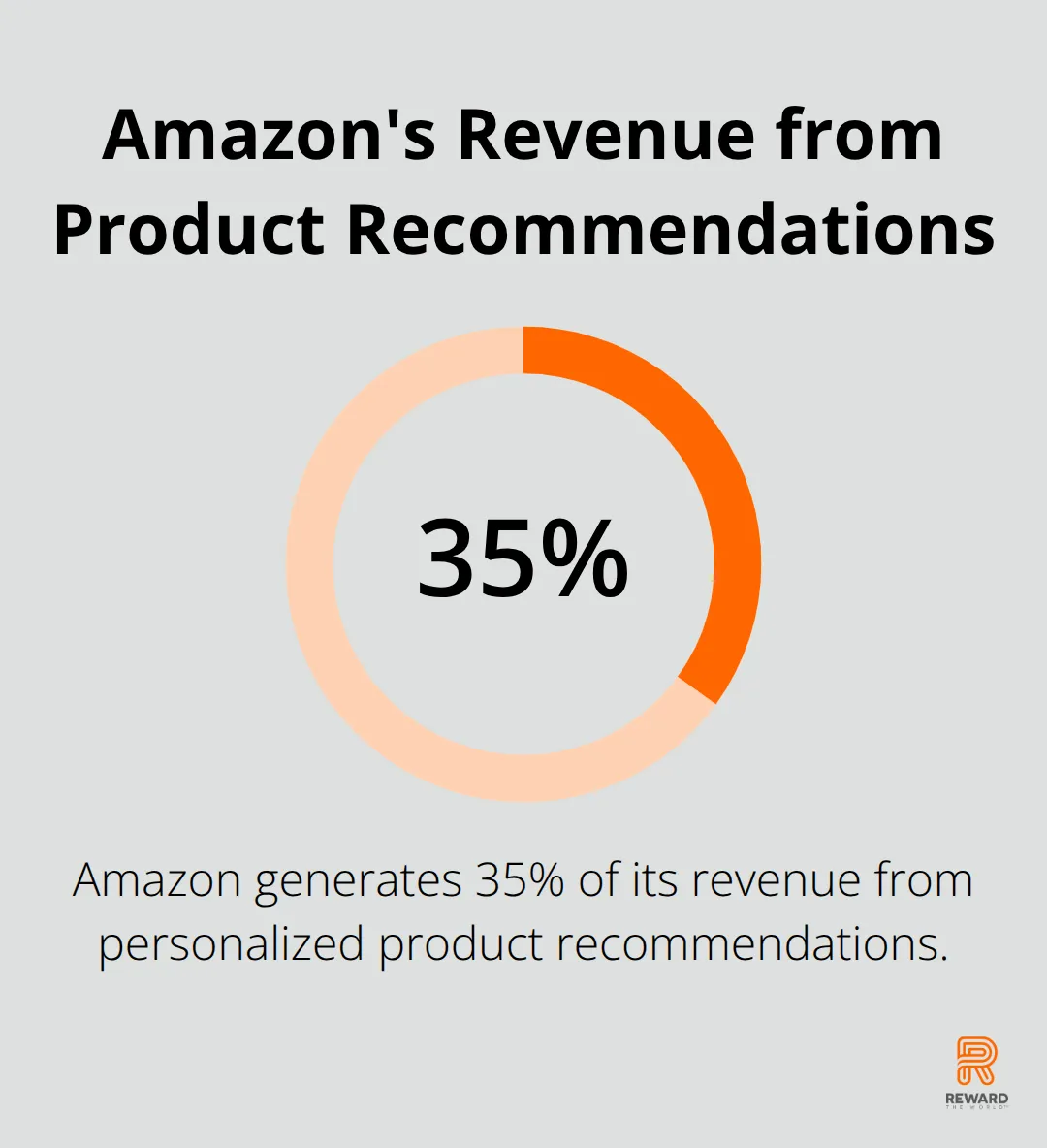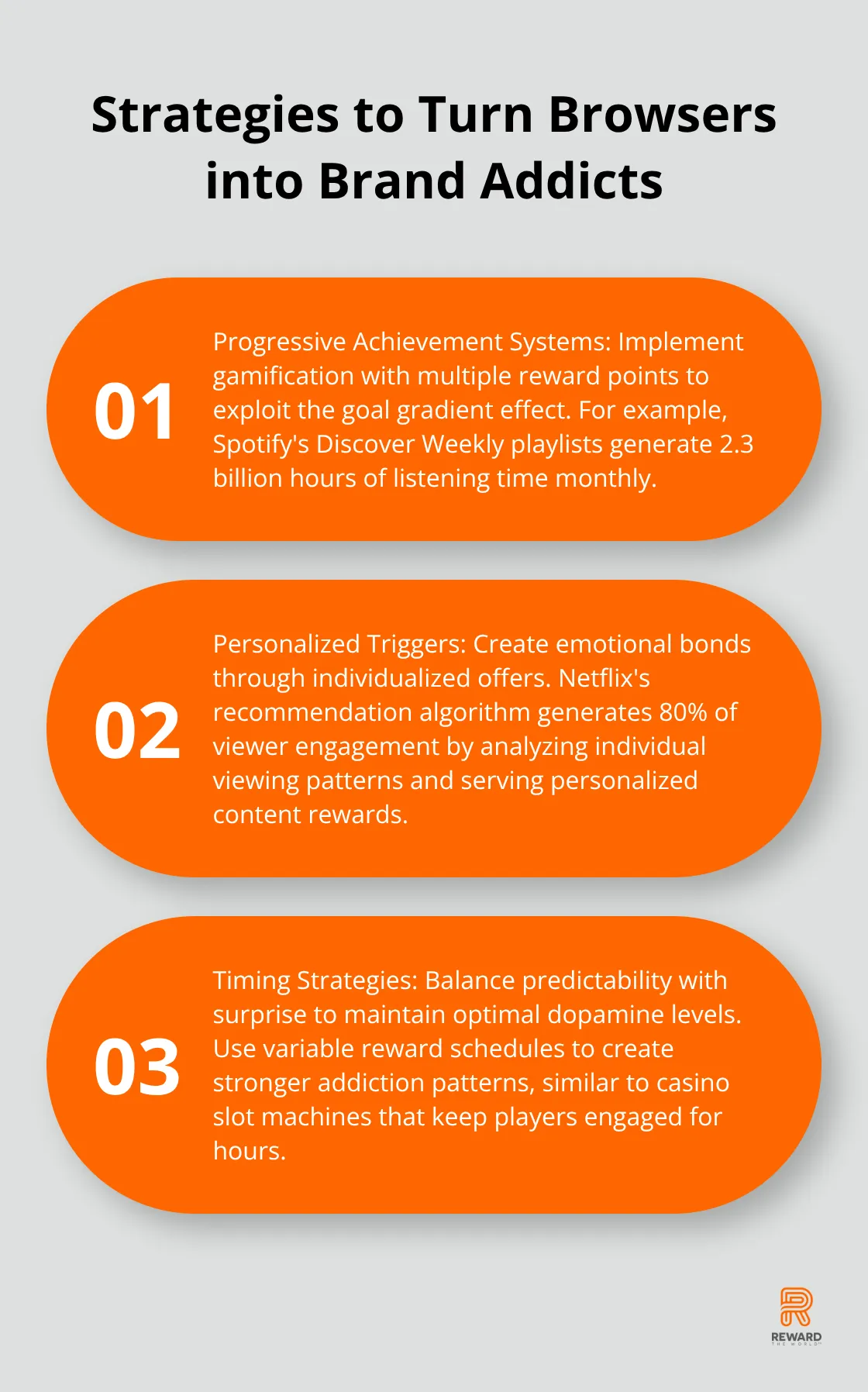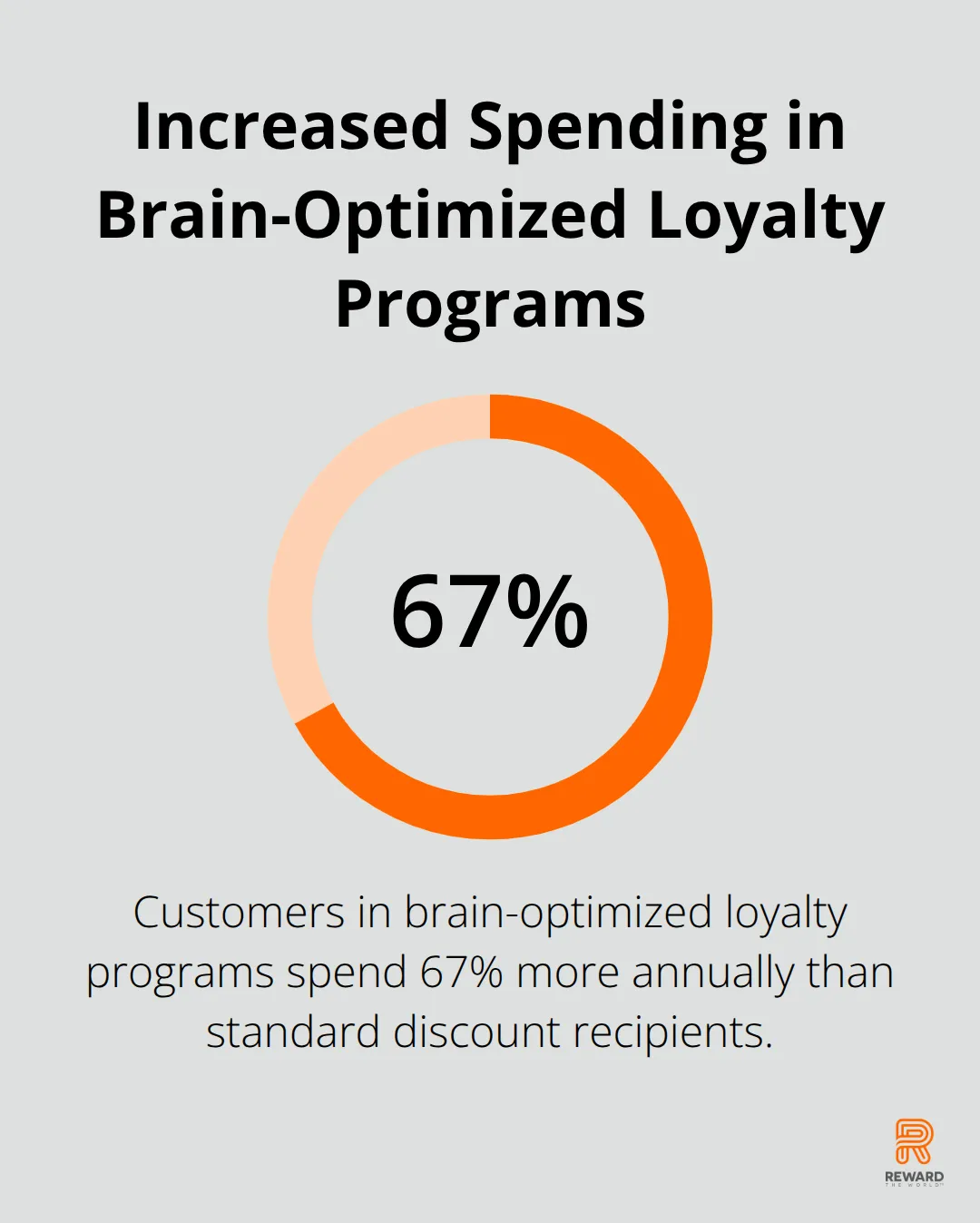
Customer loyalty isn’t just about great products or service anymore. It’s about understanding how the human brain responds to rewards and building programs that tap into these deep psychological drivers.
We at Reward the World have seen firsthand how neuro-rewards transform casual buyers into devoted brand advocates. The science behind customer attachment runs deeper than most businesses realize.
How Your Brain Becomes Addicted to Brands
Every purchase decision starts with a chemical reaction in your brain. Dopamine, the neurotransmitter responsible for pleasure and motivation, floods your system when you encounter rewards. Adults make decisions daily, and each choice triggers this same neurological response.
The moment customers see a discount notification or limited-time offer, their dopamine levels spike before they even make the purchase. This anticipation creates a powerful craving that drives immediate action.
The Dopamine-Driven Purchase Loop
Smart brands manipulate this biological system through strategic reward timing. Amazon generates 35% of its revenue from product recommendations that trigger dopamine release through personalized suggestions. The key lies in the creation of anticipation rather than just reward delivery.

When customers expect a reward, their brains release more dopamine than when they receive an unexpected one. This explains why loyalty programs with visible progress bars outperform simple discount systems by 23%. The most effective programs create multiple dopamine hits throughout the customer journey, not just at the final purchase moment.
Neural Pathway Formation Through Repetition
Repetition rewires neural pathways to create automatic brand preferences. Nike’s campaigns activate both emotional and analytical brain regions simultaneously, which creates stronger memory formation than traditional advertising methods. These repeated exposures build unconscious brand associations that influence future purchase decisions.
Recognition Rewards and Social Validation
Strava’s badge system generates recognition rewards that stimulate the same brain regions as social validation. These platforms understand that emotional engagement through the limbic system creates habit-forming loyalty patterns. The recognition element taps into our fundamental need for status and achievement (making customers feel accomplished with each milestone).
The neuromarketing industry, valued at 1.56 billion dollars in 2024, proves that brands who invest in brain science achieve measurably stronger customer retention rates than competitors who use traditional marketing approaches.
These neurological foundations set the stage for practical implementation strategies that transform casual browsers into devoted brand advocates.
How Do You Turn Browsers Into Brand Addicts
The most effective reward activation strategies combine psychological triggers with precise timing. Companies that implement progress-based gamification see 47% higher engagement than those using static discount programs. The secret lies in creating multiple dopamine release points throughout the customer journey rather than single reward events.

Progressive Achievement Systems That Hook Customers
Spotify’s Discover Weekly playlists generate 2.3 billion hours of listening time monthly because they create anticipation cycles every seven days. This predictable reward schedule trains customer brains to expect value at specific intervals. Progressive systems work because they exploit the goal gradient effect where customers accelerate their actions as they approach reward milestones.
Starbucks leverages this through star-based tiers that require increased purchases for status advancement. The most successful programs create artificial scarcity by limiting reward availability to specific time windows. Tesla’s referral program generated over 50,000 vehicle sales by offering exclusive experiences like SpaceX launch viewing parties that money cannot buy elsewhere.
Personalized Triggers That Create Emotional Bonds
Emotional connection multiplies reward program effectiveness compared to generic offers. Netflix’s recommendation algorithm generates 80% of viewer engagement by analyzing individual viewing patterns and serving personalized content rewards. The platform tracks micro-behaviors like pause patterns and rewatch frequency to predict emotional preferences.
Amazon’s purchase prediction system sends targeted reward notifications 3-5 days before customers typically reorder products (creating perfect dopamine timing). Lululemon uses purchase history data to offer early access to new collections for high-value customers, transforming shopping into exclusive experiences. These personalized approaches work because they make customers feel uniquely understood rather than mass-marketed to.
Timing Strategies That Maximize Neural Impact
The frequency and timing of rewards directly influence their neurological impact. Research shows that variable reward schedules create stronger addiction patterns than fixed ones. Casinos have mastered this principle through slot machines that deliver unpredictable payouts (keeping players engaged for hours).
Successful brands apply this same psychology through surprise rewards and unexpected bonuses. The key lies in balancing predictability with surprise to maintain optimal dopamine levels without causing reward fatigue. These timing strategies form the foundation for measuring how effectively your brain-based programs actually perform.
How Do You Track Brain-Based Program Performance
Traditional loyalty metrics miss the neurological impact that drives real customer attachment. Net Promoter Score and customer lifetime value fail to capture dopamine response patterns or emotional engagement depth. Companies need specialized measurement frameworks that track psychological triggers alongside financial returns. Successful brain-based programs require monitoring of reward anticipation frequency, habit formation speed, and neural pathway strength indicators that standard analytics ignore.
Behavioral Indicators That Reveal Neural Engagement
Customer behavior analytics reveal neurological program effectiveness through micro-interaction patterns. Session duration increases indicate stronger dopamine engagement when customers spend more time to explore reward opportunities. Click-through rates on reward notifications should exceed baseline levels for optimal brain activation, while quick redemption signals strong anticipation responses.
Progressive reward programs generate measurable habit formation when customers check status regularly without prompts. Companies that track these behavioral signatures identify which rewards create authentic addiction patterns versus superficial interest. Advanced analytics platforms measure reward interaction sequences and reveal which combinations trigger the strongest neural responses for future optimization.
Financial Returns From Psychological Investment
ROI measurement for neuroscience-based programs demands different calculations than traditional marketing spend. Customers in brain-optimized loyalty programs spend 67% more annually than standard discount recipients. Retention rates improve when programs activate multiple dopamine pathways simultaneously rather than single reward events.

Customer acquisition costs drop when existing participants generate referrals through emotional attachment rather than financial incentives. The most successful programs achieve superior return ratios through combination of anticipation-building mechanics with personalized reward timing. These financial indicators prove that psychological engagement generates superior long-term value compared to traditional promotional approaches.
Technology Tools That Measure Neural Response
Modern measurement requires sophisticated tracking systems that monitor emotional engagement patterns. Eye-tracking technology reveals which reward elements capture attention longest, while EEG data shows actual brain activation during reward interactions. A/B testing platforms compare different reward sequences to identify which combinations produce strongest dopamine responses.
Heat mapping software tracks customer navigation patterns within reward interfaces (showing where users focus their attention most). These technological tools provide concrete data about psychological program effectiveness that traditional surveys cannot capture. Gamification strategies help track key metrics such as engagement rates and conversion rates to ensure your strategy delivers desired results.
Final Thoughts
Neuro-rewards represent the future of customer loyalty programs. Companies that understand dopamine-driven behavior patterns achieve 67% higher customer spending and dramatically improved retention rates. The science proves that emotional brain connections outperform traditional discount strategies.
Implementation starts with mapping your customer journey to identify optimal reward trigger points. Progressive achievement systems combined with personalized timing create the strongest neural pathways. Variable reward schedules maintain engagement while preventing reward fatigue that kills program effectiveness (without overwhelming customers with too many options).
Modern businesses need sophisticated platforms that deliver instant gratification across multiple reward categories. We at Reward the World provide the technological infrastructure required for neuroscience-based programs with comprehensive analytics capabilities that track behavioral patterns revealing true neural engagement. Companies that invest in understanding their customers’ brain chemistry today will dominate tomorrow’s competitive landscape through unbreakable emotional bonds.
